 A congressionally mandated independent audit of the Federal Housing Administration (FHA) projects that FHA lacks sufficient funds to cover expected losses in its Mutual Mortgage Insurance Fund (MMIF). The audit estimates that FHA has a capital deficit of $13.5 billion for its forward mortgage programs and a $2.8 billion capital deficit for its reverse mortgage program. The MMIF supports the bulk of FHA program activities for single family mortgage loans, including condominium unit mortgages.
A congressionally mandated independent audit of the Federal Housing Administration (FHA) projects that FHA lacks sufficient funds to cover expected losses in its Mutual Mortgage Insurance Fund (MMIF). The audit estimates that FHA has a capital deficit of $13.5 billion for its forward mortgage programs and a $2.8 billion capital deficit for its reverse mortgage program. The MMIF supports the bulk of FHA program activities for single family mortgage loans, including condominium unit mortgages.
Notwithstanding the audit findings, FHA operations will continue uninterrupted and CAI members seeking condominium project approval or FHA-supported mortgage financing will continue to have access to these programs. Under current federal law, FHA has the ability to request and receive direct financial support from the U.S. Treasury, which ensures the agency can continue its operations.
CAI has contacted FHA officials to express support for the agency’s continued role in the mortgage finance system. In particular, CAI shared that members believe FHA should avoid any changes to the agency’s current condominium project approval guidelines, as updated this past September by Mortgagee Letter 2012-18.
CAI notes that over the past two years, FHA reports insuring 50,626 unit mortgages in existing condominiums. Of this number, 437 individual mortgages are seriously delinquent and FHA has only paid out insurance claims (taken a direct loss) on 16 condominium unit mortgages. The loss rate in FHA’s condominium unit mortgage program for existing condominiums is substantially lower than most other FHA program areas. Accordingly, CAI strongly believes that FHA should make no changes to its existing condominium programs, as any cost savings would be at best minimal while disrupting the condominium housing market.
To minimize the likelihood that FHA will require direct taxpayer funding to cover losses, FHA officials have announced a series of corrective policy measures that will be implemented—
» A 10 basis points (0.1 percent) increase in FHA’s annual mortgage insurance premium
» A requirement that borrowers continue to pay FHA annual premiums over the life of the loan
» Streamlined short sale procedures, and
» Additional sales of distressed FHA mortgages to investors
In 2011, FHA’s independent audit estimated a 50 percent chance the agency would require direct taxpayer assistance in 2012. FHA was able to avoid requesting taxpayer funds by obtaining substantial monetary penalties from mortgage lenders that violated FHA program requirements and by increasing mortgage insurance premiums. FHA’s actions, in particular the minimal increase in the annual mortgage insurance premium, signal the intent of FHA officials to respond incrementally to the decline in the agency’s fiscal condition to avoid market disruptions.
FHA has come under criticism in the U.S. Senate and the House of Representatives for the decline in its financial condition. Both the Senate Committee on Banking, Housing, and Urban Affairs and the House Committee on Financial Services have announced public hearings on FHA’s independent audit in the coming weeks. Key members of the House of Representatives are calling on the Senate to pass H.R. 4264, the “FHA Emergency Fiscal Solvency Act of 2012,” which passed the House of Representatives on September 11, 2012, by a vote of 407 to 2. H.R. 4264 allows FHA greater flexibility in establishing mortgage insurance premiums, streamlines FHA’s ability to recoup losses incurred from loans that violate program standards, and orders a general review of all FHA program areas.
FHA has played a key role in the housing finance system for CAI members, in particular condominium associations and condominium unit owners. FHA has worked with CAI to implement reasonable condominium project approval standards that protect the financial stability of condominium associations and provide unit owners the opportunity to refinance mortgages or sell their units. Most recently, FHA responded to several of CAI’s key concerns with its condominium approval standards, which will result in more condominium associations being qualified to participate in FHA programs.
CAI will continue to engage in conversation with federal legislators and federal regulators to ensure community association housing has reasonable access to FHA supported mortgage financing options. As the public hearings and housing finance proposals continue to move forward, we will keep you posted on how you can help by contacting your legislators and regulators.

